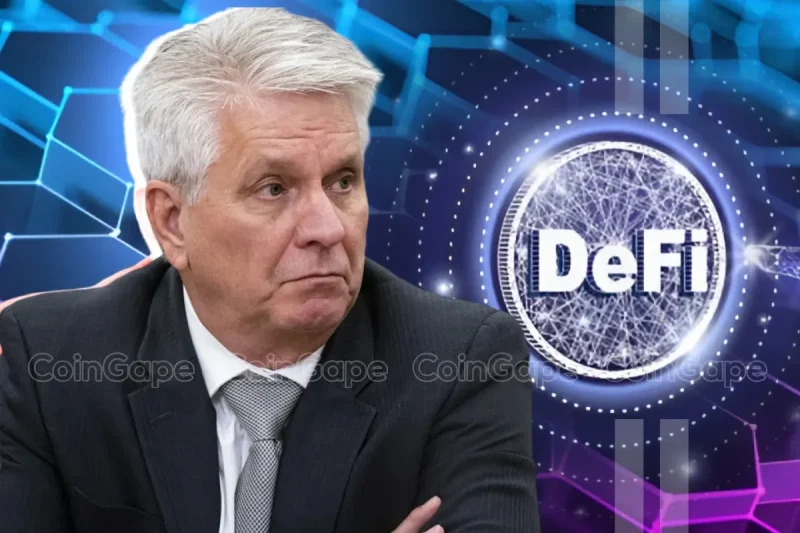
Fed Governor Christopher Waller Reveals DeFi’s Role In Global Finance
On Friday at the Vienna Macroeconomics Workshop, Fed Governor Christopher Waller opined that DeFi could complement and substitute centralized finance.
He observed that the technologies responsible for this area may enhance efficiency within traditional financial operations by allowing individuals to trade assets directly without intermediaries.
Fed’s Christopher Waller: DeFi to Transform Trading, Enhance TradFi Efficiency
Federal Reserve Governor Christopher Waller explained that DeFi might complement traditional finance and thereby pave the way for some important changes in the trading of financial markets.
He also said that innovations linked to DeFi include smart contracts and distributed ledger technology, which could facilitate trades more efficiently by automating sophisticated transactions and reducing settlement risks.
According to him, DeFi had the potential to enhance the efficiency of traditional financial systems by embedding these technological innovations. Waller explained the usefulness of smart contracts and said they would simplify transactions by bringing many components together in one smooth process.
This can effectively reduce settlement and counterparty risks since a buyer would only pay if the seller has delivered what they are selling. Although Waller said it is still early days for their adoption, he was hopeful that this will go well beyond what they are capable of today for various financial activities.
Stablecoins are becoming a big deal. Just recently, Ripple launched its RLUSD, pegged to the US dollar in a 1:1 ratio. The firm launched it to use it in cross-border payment.
Christopher Waller furthermore explained how DLT, tokenization, and smart contracts could make trading more effective in the context of DeFi and centralized finance, setting them up as complementary technologies.
He also reflected on the role of financial intermediaries, which have, throughout history, eased trade by reducing the search time and costs for trading counterparts. He qualified, though, that such intermediaries. At the same time, they may ease contacts between buyers and sellers and inject transaction costs and governance problems, due to which incentives across parties may need to be more aligned.
Efficiency Gains with Blockchain and Smart Contracts
Historically, technological innovations have been the key driver in shaping the financial world, and DeFi represents an essential new chapter in that journey-one fixated on perfecting trade.
Christopher Waller emphasized the critical role stablecoins play in DeFi, likening them to “effectively digital currency” that reduces reliance on more traditional payment intermediaries and, in the process, helps bring down cost pressures globally.
Finally, he said:
“Considering all that, tremendous gains in efficiency probably will be achieved far into the future from the core DeFi foundational technologies: blockchain and smart contracts.”
Fed Governor Christopher Waller recently spoke to the benefits of DeFi technologies but pointed out a variety of concerns about the security, trust, and regulatory burdens that may ensue. He especially focused on stablecoin risks that one could utilize for illicit purposes. He also referred to past examples of synthetic dollars that experienced liquidity squeezes.
Waller called for the application of bespoke regulations that would ensure that one can safely reap benefits coming from DeFi.
He said:
“When it comes to our financial plumbing, which affects every person or business in one way or another, I think a balanced view of expeditious disruption and long-term sustainability is merited.”
The post Fed Governor Christopher Waller Reveals DeFi’s Role In Global Finance appeared first on CoinGape.
